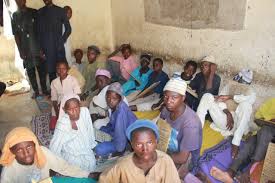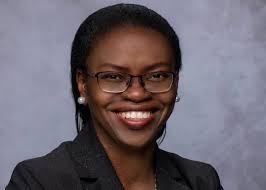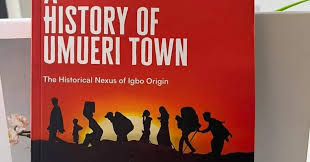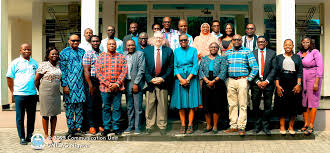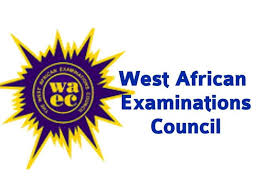In November 2024, the Federal Government made a landmark stride toward addressing the persistent challenge of Almajiri and out-of-school children in Nigeria.
The National Commission for Almajiri and Out-of-School Children’s Education, NCAOOSCE, with the support of the Office of the National Security Adviser, ONSA, successfully organised a three-day retreat focused on finding sustainable solutions to this crisis.
The retreat brought together key stakeholders, experts, and analysts to deliberate on actionable measures to curb the rising number of out-of-school children, OOSC, in Nigeria. Discussions emphasized the urgent need for collective action, underscoring the link between neglecting education and growing insecurity.
Distinguished speakers at the event included Senator Ibrahim Shekarau, representatives from the Northern Governors’ Forum, NGF; the Christian Association of Nigeria, CAN, and the South-West Muslim Community. Also in attendance were the wife of the Ooni of Ife, traditional rulers, and other influential figures committed to tackling the issue.
Participants proposed several proactive strategies, including a renewed political commitment from governments at all levels to prioritise education, the provision of reliable and verifiable data to inform policy decisions, and increased funding from the government, corporate entities, international organizations, and individuals to support education.
Additionally, participants also harped on the dire need for employing qualified teachers as well as training and retraining the existing ones to ensure quality education, leveraging technological breakthroughs in utilizing information for teaching and learning, and enhanced advocacy to sensitize the public on the mission and vision of NCAOOSCE.
Furthermore, as a result of the challenging nature of our present environment where life is becoming unpredictable and unstable, the participants saw the need for integrating skill acquisition into teaching and learning for productivity and self-reliance.
The role of the National Security Adviser, NSA, Malam Nuhu Ribadu, in the initiative reflects his unwavering commitment to national stability. Since assuming office, he has championed policies that enhance national development and security which are key prerequisites for a productive society.
His efforts align with a broader vision of fostering an environment where education is accessible to all and the youth are protected from the threats of radicalisation and crime.
Despite being Africa’s most populous nation with over 200 million people spanning more than 300 ethnic groups, Nigeria struggles with an alarming number of out-of-school children. Statistics indicate that for every five out-of-school children worldwide, one is Nigerian. An unacceptable reality!
Reports reveal that over 30 million Almajiri children and 20 million out-of-school children roam Nigeria’s streets, making them vulnerable to exploitation by extremist groups.
Experts warn that if left unchecked, this crisis could have catastrophic consequences for the country’s security and socioeconomic stability. Illiteracy, unemployment, and poverty are already fueling insecurity, and the staggering number of uneducated youths poses a severe threat to national cohesion.
Successive administrations have attempted various interventions, including integrating Almajiri education into the formal system. The establishment of NCAOOSCE on May 27, 2023, under an Act of Parliament signed by former President Muhammadu Buhari, marked a crucial step in institutionalising solutions.
The mandate of the agency is to address illiteracy and the challenges faced by out-of-school children in Nigeria. Parts of its goals include developing entrepreneurship and skill acquisition programmes and preventing poverty among youth.
Under the leadership of Dr. Muhammad Sani Idris, the Commission has received commendations for its strategic approach to tackling the crisis. Stakeholders have described his appointment as a round peg in a round hole. This is a testament to his rich scholarly background and the various positions he held both in private and public service where he wrote his name in gold by making a lot of impacts
A seasoned educationist and administrator, Dr. Idris has a proven track record in educational reform. He holds master’s and doctorate degrees in Islamic Studies. His experience, spanning roles as Commissioner for Basic and Secondary Education in Yobe State and Chairman of the Nigerian Arabic Language Village in Borno State makes him well-positioned to lead the charge in addressing Nigeria’s educational deficit.
He was also a member of the Nasarawa State Government Committee on Enlightenment Campaign and served as Secretary-General of, the Association of Private Schools in Nasarawa State.
Recall that stakeholders at the retreat expressed confidence that with continued political will, adequate funding, and a well-structured implementation plan, Nigeria can reverse the trend of declining school enrollment and ensure that every child, regardless of background, has access to quality education.
Notwithstanding, the fight against the out-of-school children crisis is a collective responsibility. Government agencies, civil society organizations, religious leaders, and the private sector must work together to ensure that education remains a fundamental right rather than a privilege.
It is believed that by investing in education, Nigeria can secure its future, mitigate security threats, and build a more prosperous and stable nation where every citizen will thrive.
•Ya’u Madobi, a Research Fellow at the Center for Crisis Communication, CCC, wrote via: ymukhtar944@gmail.com.

